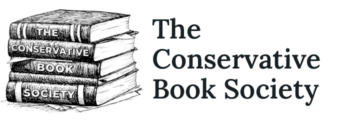Conservative thinking follows various theories and practices, but all conservatives share a common set of values. In order to best understand conservative values, we’ve complied a list of five books every conservative must read to fully understand contemporary politics and culture.
Watch Review Here and follow us on Instagram!
These books include fiction and non-fiction, and they cover various topics from history and philosophy to economics, sociology, government, and numerous other disciplines. In the end, these books are the best representation of conservative ideals and widely cited by conservative minded leaders around the world.
1) Atlas Shrugged by Ayn Rand
Ayn Rand’s Atlas Shrugged ushered in an age of free market thinking and rugged self-reliance. Her publication of the Fountainhead made her a household name by the 1940s. Her bold philosophy, called Objectivism, gained a following among intellectuals. Rand’s magnum opus, Atlas Shrugged, was published in 1957. The hero of the novel, John Gault, remains an icon of conservatives and libertarians. Atlas Shrugged is the story of America’s decline due to socialist governmental policies. The main character, Dagny Tagert, and her friend, Hank Reardon, showcase the virtues of free markets as they battle oppressive government schemes. Read a full review of Atlas Shrugged.
2) The Federalist Papers by Alexander Hamilton, James Madison, and John Jay
No list is complete without the full authoritative rendering of why the United State Constitution matters. In the years following independence from Great Britain, the colonies were governed by a document called The Articles of Confederation, but it was a flawed system. So, the same men who fought for independence and set up the government in the first place, convened a constitutional convention out of which our current constitution was written to correct the problems under the Articles of Confederation. The Federalist Papers is a full-throated defense of our federal constitution – then and now. It explains in full detail why the government was set up the way it was, checks and balances, separation of powers, and why the states were given enormous authority under the government. This is where we learn the essence of limited government, republicanism, and democratic governance.
3) 1776 by McCullough
1776 by David McCullough is essential reading. It is the story of a providential year in which the colonist’s efforts were on the verge of collapse over and again. It is the story of our nation’s character. The story McCullough tells spans from Lexington and Concord to Bunker Hill (Breeds Hill) to the canons of Dorchester Heights and a daring escape in New York. The Continental Army, led by General Washington was in bad shape. With careful detail, McCullough sets the stage as the scene shifts to Trenton, New Jersey in December of 1776 – The place where where Washington and his men cross the Delaware River to cease our nation’s liberty.
4) 1984 by George Orwell
George Orwell changed the world with his words, ideas, and stories. None of his books contributed more to our modern political discourse than 1984. The “memory hole,” “Big Brother,” and the “Ministry of Truth” are just some of the terms Orwell gives us, which are as noteworthy now as they were when he wrote them in 1949. In the book, Winston Smith secretly fights the totalitarian regime controlling the fiction country of Oceania. The government’s key to success is brainwashing the nation and violently crushing dissenting political speech, and even thoughts. The story rings true throughout because we continue to see snippets of these ideas from our own government. Orwell’s real as life tale is captivating all the way to its gruesome finality. You will never forget “2 + 2 = 5.”
5) The Road to Serfdom by F. A. Hayek
Political philosophy has surrendered to party politics for the past few decades. Perhaps the last true contribution to the field is F. A. Hayek’s The Road to Serfdom. Like 1984, it emerged as an antidote to the totalitarianism popular in the mid 20th century – nazism, fascism, socialism, communism. The government by design schemes in which the “ruling class” control the means of production and concoct collectivist plans is far from utopian. Instead, those misguided intellectual planners promote dictatorships, requiring governments to crush individual liberty at all cost. No work offers a more robust argument in favor of individual liberty over government authority than The Road to Serfdom.
Bonus
President Ronald Regan’s First Inaugural Speech is a wonderful restatement of modern conservativism. What began in 1964 when he delivered “The Speech” to the Republican National Convention, culminated on his inaugural day in 1981.





